Mr. Hua Van Thao with his "nomadic" life, away from his family for many years - Photo: NH
Nomadic life...
The makeshift hut, covered on all four sides mainly by green nylon tarpaulin, is located high on a hill near Highway 9C in Chuon village, Kim Ngan commune; the items inside, apart from an old wooden bed, are mainly beekeeping tools. The owners of this hut are three brothers from Gia Lai province. Seeing a stranger, the thin, small man had to stop his work of spinning honey wax. After a few polite greetings, it was discovered that they were the ones taking the bees to find the blooming flowers.
Mr. Ha Van Quoc (born in 1978), a native of Hanoi, followed his parents to Gia Lai to work in the new economy in the 1980s. Before starting beekeeping, Mr. Quoc was a rubber latex tapper at a local economic unit.
With more than 10 years of experience in honey bee exploitation, Mr. Quoc and his two brothers-in-law, Le Song Hao and Le Quang Cuong (both from Gia Lai), regardless of the long distance, brought nearly 900 bee colonies to Kim Ngan commune, borrowing people's planted forests to "collect honey".
According to Mr. Quoc, the first step in beekeeping according to the flower seasons is to contact and find a favorable location for the bees to live. After choosing a location, he decided to set up camp and bring the bees there. Kim Ngan commune has been a familiar stop for him in recent years when he brings his bees to harvest honey.
“For beekeepers like us, there are about 3 times a year when bees migrate to follow the blooming seasons in different regions of the country. From the 3rd to 4th lunar month every year, we choose Quang Tri province to set up a beekeeping site. Near the end of the 7th lunar month, when the rainy season begins, we bring the bees back to Gia Lai. In between those regular moves, there are years when I bring the bees to the northern provinces to exploit the lychee and longan flower seasons...”, Mr. Quoc shared.
According to Mr. Quoc, the days of living a “nomadic” life with the bees under the canopy of the planted forest were days of living far from his wife and children, and his daily life was very difficult because the location was far from residential areas. However, the most difficult time was when he had to move the bees to another locality.
Moving the bee colony must be done at night to avoid losing numbers. The biggest worry is moving the bee colony to the northern provinces to collect nectar from lychee and longan flowers. Sometimes half of the bee colony is lost because the distance is long and the bees are exposed to pesticides from the orchards, not to mention the huge cost of each migration...
Not far from Ha Van Quoc's "honey gathering" spot, Hua Van Thao (born in 1986), residing in Bac Giang province (old) also borrowed acacia forest from local people to place nearly 600 honey boxes. This is the second season that Thao has had to be away from his family, eating and sleeping under the acacia forest to earn a living. For him, the "nomadic" life with the bees, facing difficulties due to no electricity, no running water, temporary sleeping places... has become familiar.
“For me, the job of beekeeping requires me to travel everywhere, and I rarely get to be with my family and children. This job, associated with the saying “eating the wind and sleeping in the dew”, if the weather is favorable, I have a stable income, otherwise it is very hard. In the near future, when the flower season in Kim Ngan commune ends, I will return to my hometown to continue “collecting honey” in the gardens borrowed from the people...”, Mr. Thao informed.
Vice Chairman of Kim Ngan Commune People's Committee Tran Duy Binh said that currently in the commune, there are about 40 - 50 households from other provinces coming to borrow forest land from local people to raise honey bees during the flowering season. Most of them are people from the Northern provinces and some Central Highlands provinces, living here and there. When they arrive in the locality, they are registered for temporary residence and temporary absence procedures. Because they live in the forest, their daily life still faces many difficulties and shortages; at the same time, the price of honey this season is not high, the yield is low due to the weather, the products are not consumed, so they still have many hardships and worries... |
" ...the king is heavy..."
Every month, seasonal beekeepers collect honey twice, each time about 15 days apart. If they take good care of the bees, they can collect honey earlier. This year, the weather is unfavorable, with a lot of rain, so the honey yield is not as high as the previous crop; the price of honey is unstable, the product cannot be sold... are the difficulties that seasonal beekeepers in Kim Ngan commune are facing.
A corner of Mr. Hua Van Thao's seasonal beekeeping farm - Photo: NH
Mr. Ha Van Quoc said that the bees raised on his farm are mainly foreign bees, so the honey market is mainly for companies that buy it for export. On average, each bee colony requires an investment of about 1.5 million VND.
“Each beekeeping season yields nearly 40 tons of honey, an average of 3-4 tons per month. With a purchase price of about 7,000-8,000 VND/kg, after deducting expenses, we earn 4-5 million VND/person/month. The most difficult thing in beekeeping is the output for honey. If honey is sold to traders, the price is very cheap, but if we sell it retail, the price will be higher, but it is very difficult because people are still worried about the quality...”, Mr. Quoc shared.
According to Mr. Hua Van Thao, each month, his farm also collects about 4 - 5 tons of honey. If the honey is thick and golden, traders will buy it for 8,500 VND/kg; earning about 50 million VND/month. However, the cost of additional food for the bees, such as: Soybean powder, coffee pollen and honey is high, so the profit is not much...
“Here, when it’s honey harvesting day, my wife has to travel all the way from her hometown in Bac Giang (old) to help, because there are no daily workers. Now, if we pay more for labor, the profit is not much. After harvesting the honey, my wife has to take a bus to the children...”, Mr. Thao informed.
Currently, the biggest challenge for beekeepers in Kim Ngan commune is that the honey they produce cannot be sold on the market. Many farms still have a very large honey output, some farms have 7-8 tons of honey in stock that has not been purchased by traders...
Ngoc Hai
Source: https://baoquangtri.vn/theo-nhung-mua-hoa-no-196143.htm


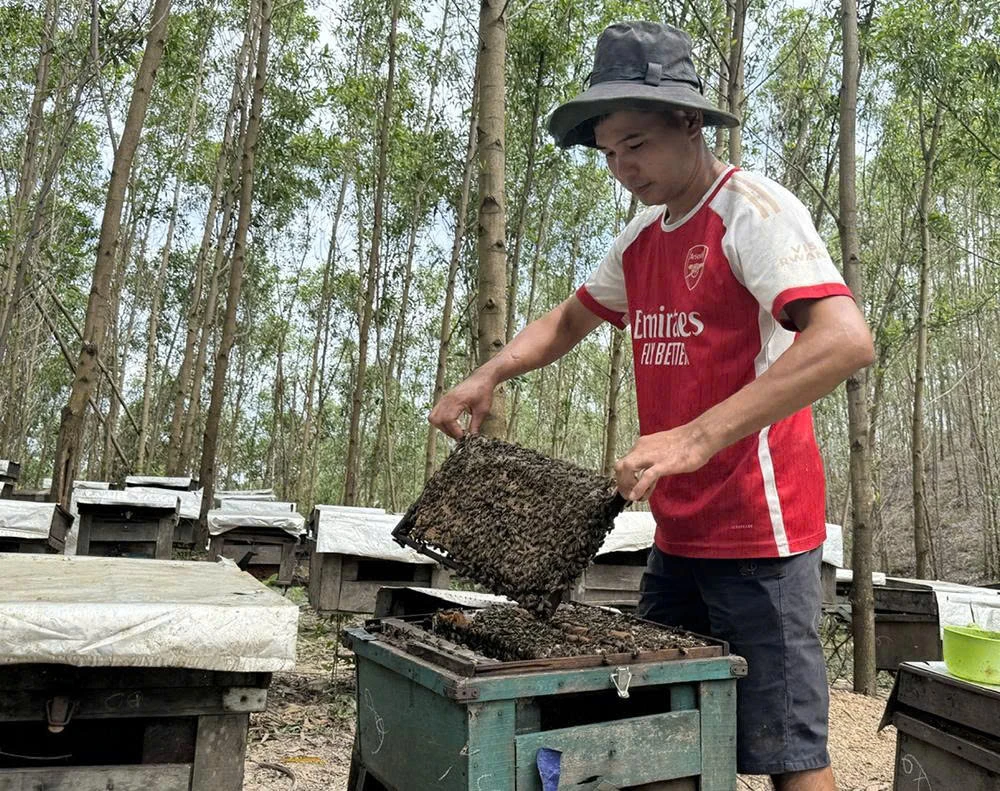
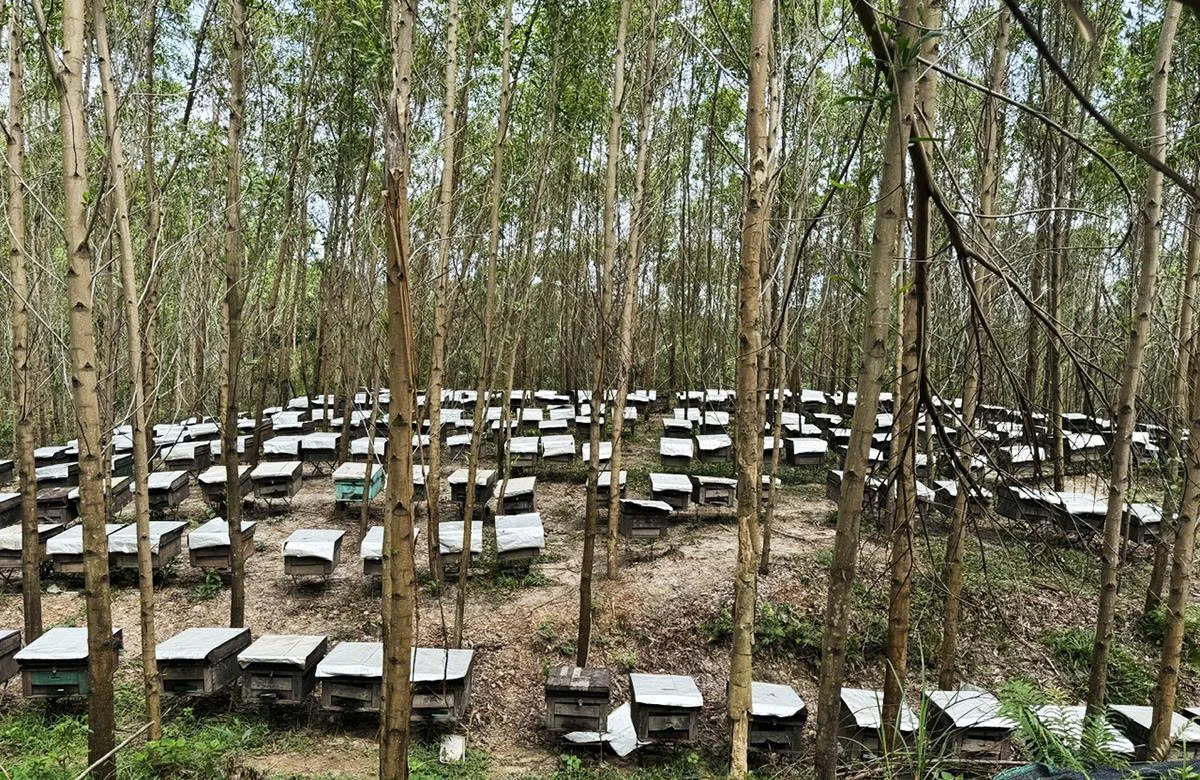


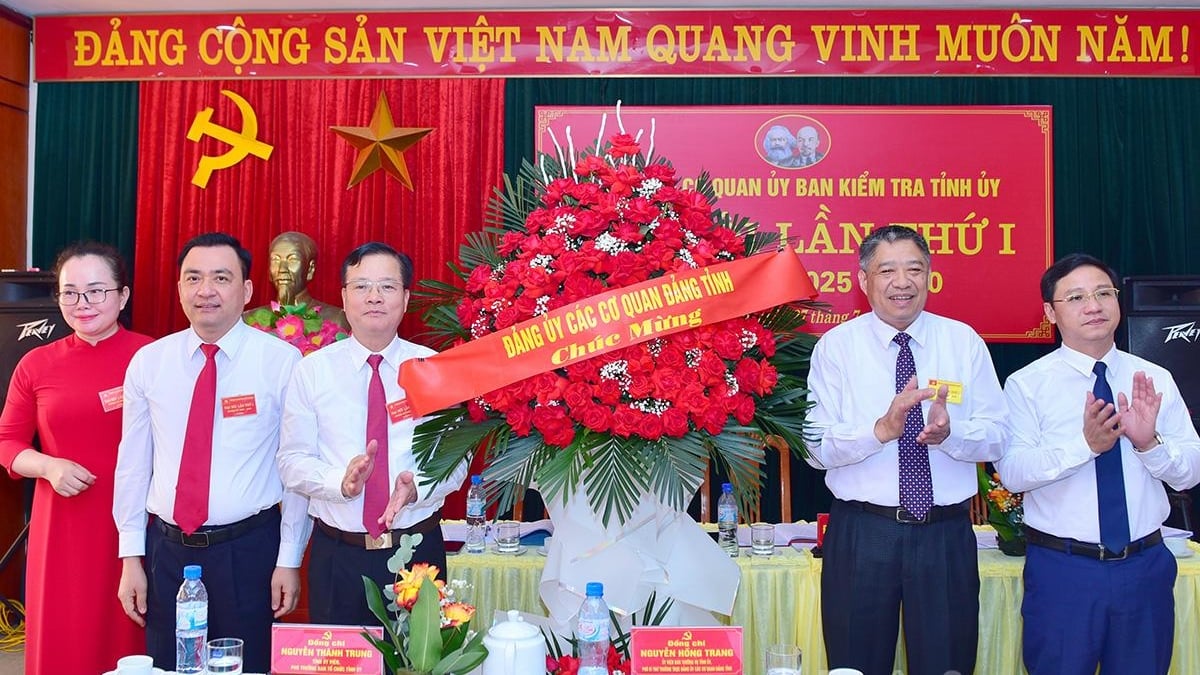
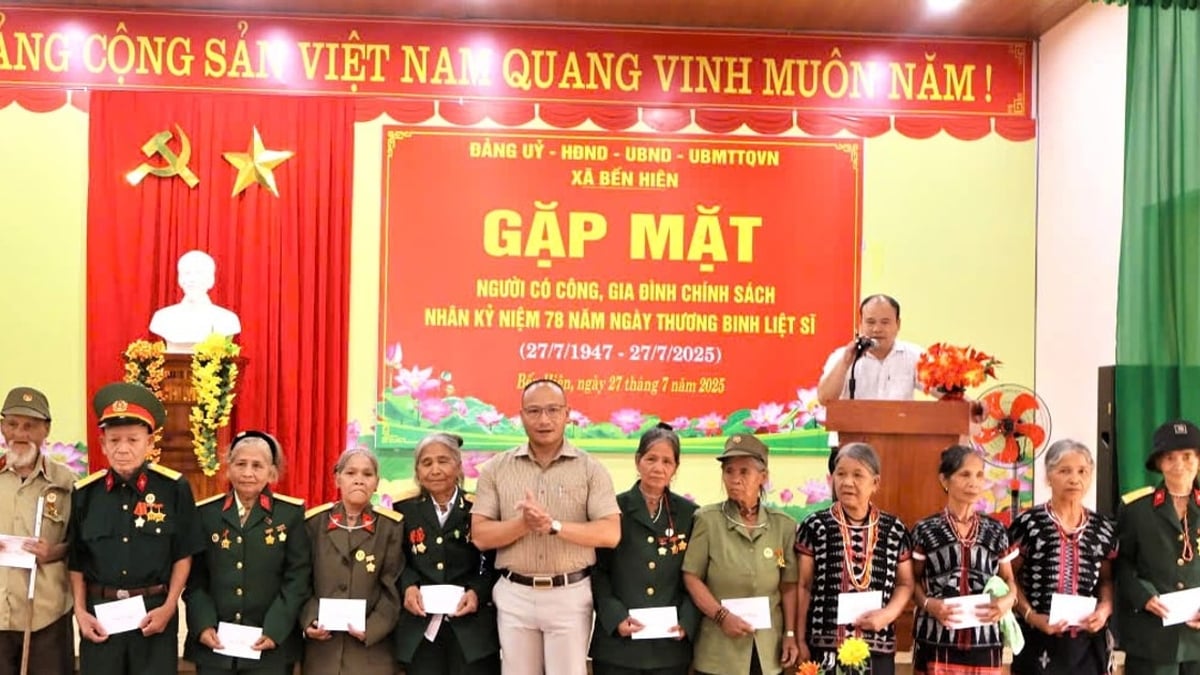


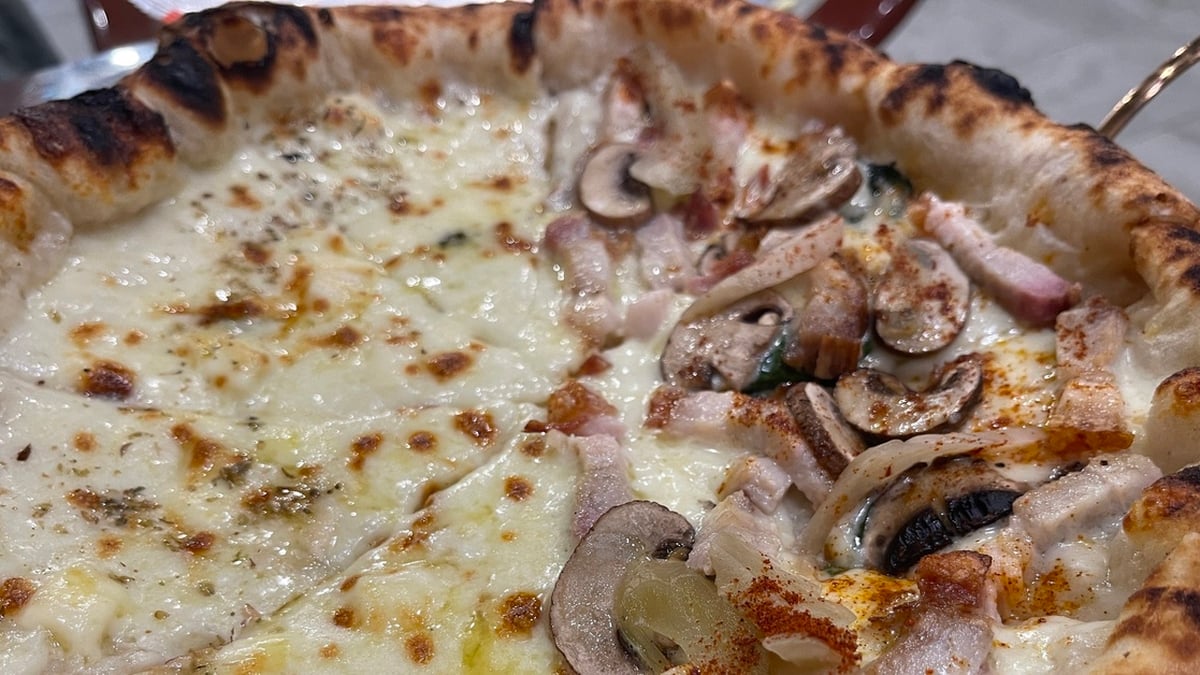


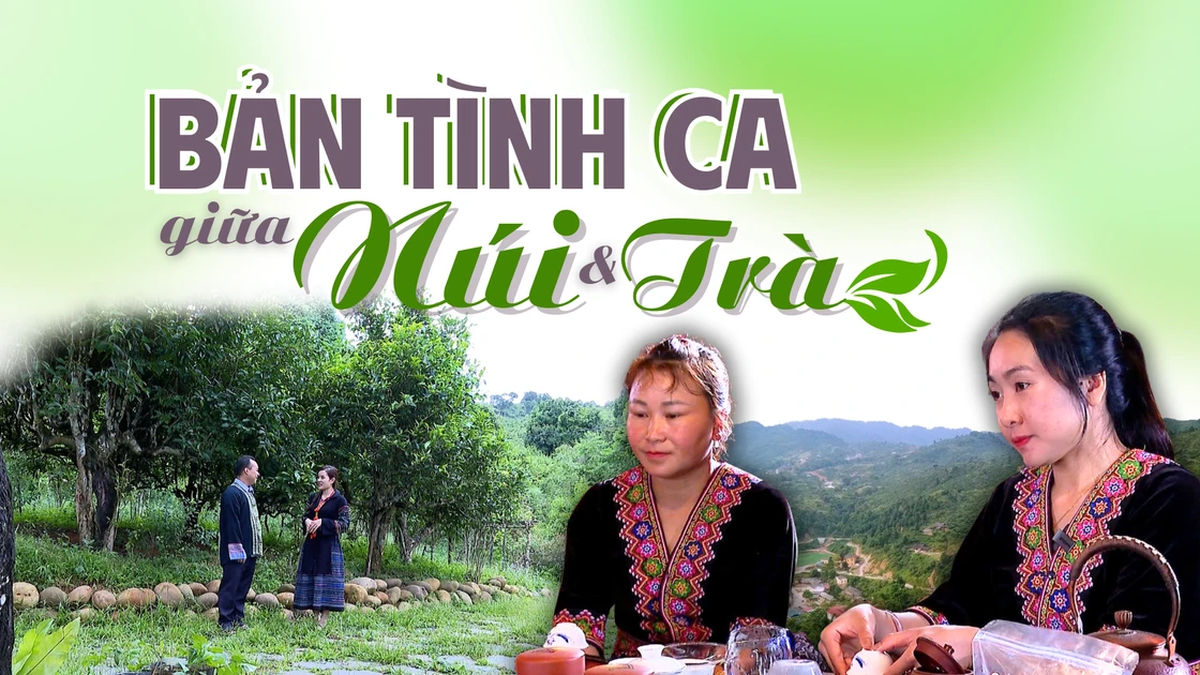






















































































Comment (0)